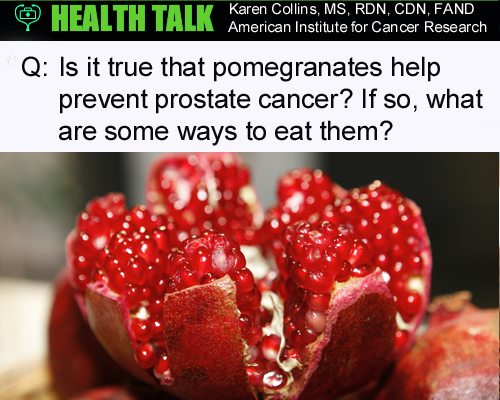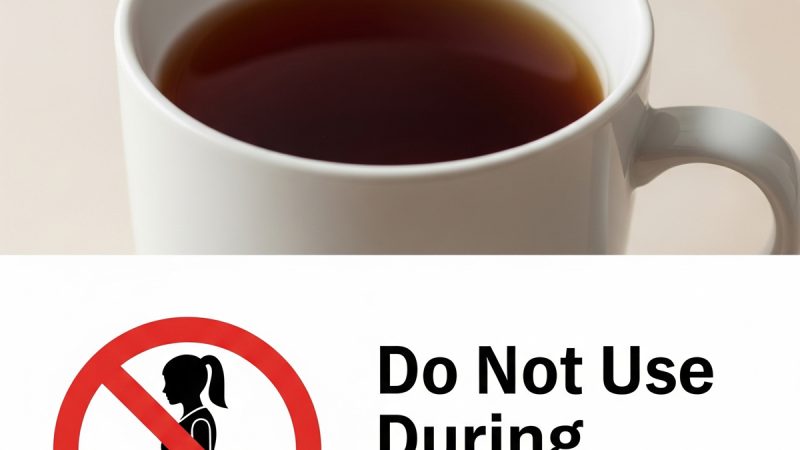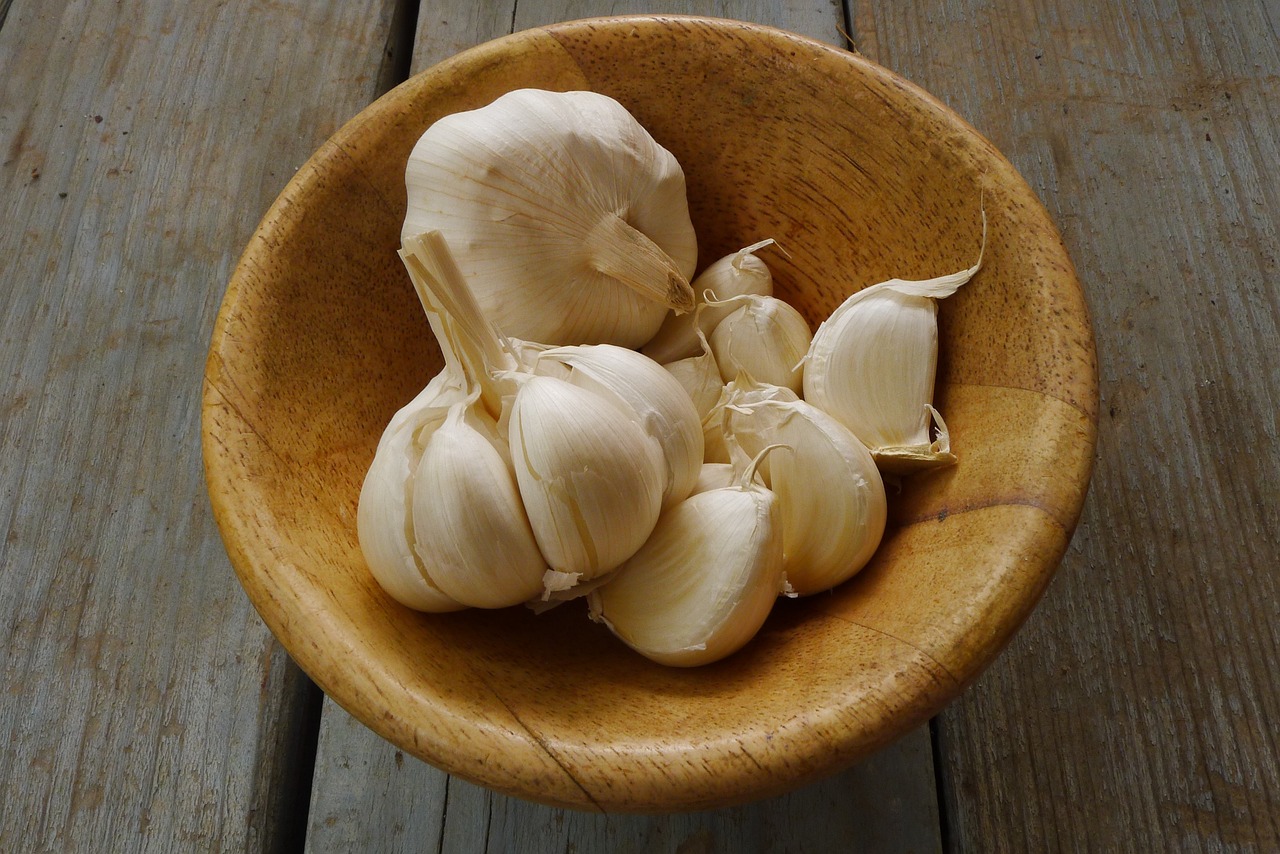Health Talk: Pomegranates

Q: Is it true that pomegranates help prevent prostate cancer? If so, what are some ways to eat them?
A: The research showing strongest anti-cancer effects of pomegranates and pomegranate juice involves prostate cancer, but bear in mind that results are still tentative. Pomegranates rank high among fruits for antioxidant and anti-inflammatory effects because of their vitamin C and phytochemical compounds. The laboratory evidence shows that substances, called urolithins, that our body produces from pomegranates’ compounds can decrease prostate cancer cell growth and ability to spread. Some human studies show that pomegranate juice or extract raises levels of antioxidant compounds in the blood, but we have only a handful of relatively small human studies directly related to cancer. There is research suggesting that individuals may vary in how well they absorb these compounds, so it’s possible that some will benefit more than others from pomegranate consumption. One small intervention trial of men previously treated for prostate cancer who had rising PSA levels (an indicator of prostate growth or inflammation) reported that consumption of eight ounces of pomegranate juice significantly slowed signs of prostate cancer progression.. We need more research before recommending pomegranates for cancer prevention and we also need to know if there are differences between the juice and eating the pomegranate arils (the little sacks that hold the seeds and juicy pulp).
In the meantime enjoy these fruits for great nutrition and taste. For an easy, neat way to get those juicy arils, simply place pomegranate quarters in a large bowl of water and roll the arils out with your fingers. Remove the membranes that float to the top, and then empty the bowl into a strainer to capture the juicy arils. Enjoy them mixed in salads, cereal, yogurt, rice and many other foods.
Q: Does coffee affect cancer risk?
A: Although previously there was concern that coffee might increase risk of some cancers, recent larger, better-controlled studies show that for most cancers, up to six cups of coffee per day do not increase risk. Now research is underway evaluating whether coffee might help reduce cancer risk, either as a major source of antioxidants or by affecting specific steps in the process of cancer development.
Coffee contains several natural compounds that in laboratory studies can reduce inflammation, inactivate carcinogens and help regulate cell growth. In some population studies, people who drink moderate or high amounts of coffee daily show modestly reduced risk of a wide range of cancers, such as endometrial cancer in one recent study. Yet despite promising laboratory evidence, the large NIH-AARP population study did not find any link between coffee of any type and breast cancer risk, and other population studies show mixed results about any potential link between coffee and lower risk of cancer, such as pancreatic and prostate cancers. Bottom line: unless advised otherwise for medical reasons, enjoy moderate amounts of coffee without fear of cancer risk if you like, but make it part of an overall healthy diet and weight control, which have stronger research support as effective ways to reduce cancer risk.
The Author:
Karen Collins , MS, RD, CDN








